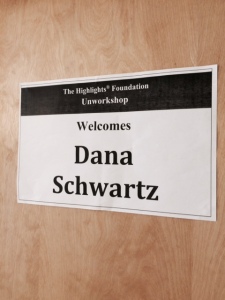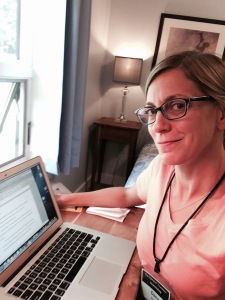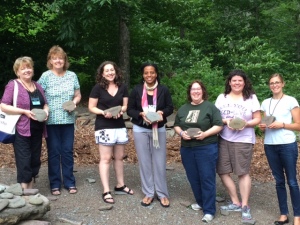As some of you know, I’ve been writing a memoir for a little over a year about motherhood, illness, and grief. After reaching my (arbitrary) word count of 70k this past June, I soared to a whopping 90k by September.
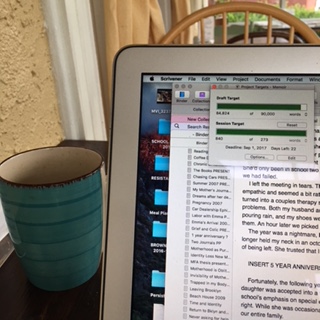
While I was thrilled to have amassed so much raw material, a part of me was also terrified. What am I going to do with this mess?
Because that’s what it felt like – a giant hot mess. Memories of my life from childhood to present day all poured into a Scrivener file so big it took over my computer.
I know some writers enjoy the revision process, but I’m not that writer. Or at least, I wasn’t.
But recently I realized something. The reason revision scares me is because it requires a transition. A switching of gears.
Writing for me is an intuitive process. Often I don’t know where I’m going until I arrive. Perhaps that’s why I’ve always loved the E.L. Doctorow quote, “Writing is like driving at night in the fog. You can only see as far as your headlights, but you can make the whole trip that way.”
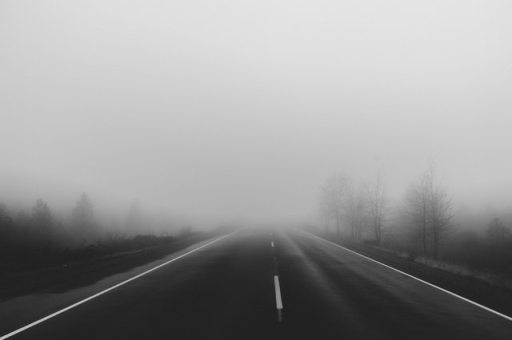
Of course some writers outline and map out at the onset of a project, but I prefer walking around in the dark.
This requires faith. You have to trust that where you end up, is where you need to be. You have to trust that nothing is a waste, even if it ends up in the trash.
You have to recognize the voice of Fear, as Elizabeth Gilbert says in her book on creativity, Big Magic, and steer it gently but firmly to the backseat of your mind.
You have to ignore the voices in your head – and outside of it – that say your story doesn’t matter, that no one cares. (Thank you Cheryl Strayed for your fantastic rebuttal of the stale argument that all memoir is narcissistic.)
You have to be willing to turn on the lights. You can’t revise in the dark. The fog must lift.
Recently, I listened to several interviews with Jennifer Egan, a Pulitzer Prize winning novelist. During a Writers on Writing podcast, she spoke of her process, detailing exactly how she goes from a literally messy handwritten draft – which was 1400 pages for her latest novel, Manhattan Beach – to a published book.
While her first draft is deeply intuitive, she switches to her analytical brain during revision. She is also unapologetic about the quality of those initial pages.
“The book was bad,” she stated in a recent New Yorker profile.
This isn’t a humble brag or false humility; it’s the truth. The point of a first draft is not perfection. The point is to make a mess, but the trick is not to be afraid of it.
A few days later I stumbled upon a quote from Alice Mattison’s craft book, The Kite and the String, that has quite literally changed the way I’m looking at my current messy manuscript.
“When a draft looks terrible, I don’t try to convince myself that it’s actually good or even that someday it will be, only that it’s my job to work on it whether it’s good or not.”
YES. That’s it, that’s what Jennifer Egan was talking about when she discussed her process of writing and revision.
“It’s pretty unpleasant,” she said about the first read-through, but after taking copious notes, she creates a detailed outline of revision. Then she begins the painstaking but focused process of analyzing the material.
The goal for each revision, which she does chapter by chapter, is to “bring it up a clear notch.” She does this repeatedly, over years. Each time the revision outline gets shorter, and each time the book gets closer to the final product.
It made me think about a rock tumbler, how over time, and after a series of lengthy steps, you can transform dull rocks into gleaming stones.

So that’s what I’m working on now. Raising each chapter up a level, again and again, until the work is done.
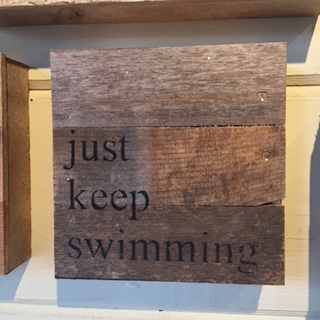
Dory was onto something.
I’d love to know what projects you are working on, and if you think any of this advice may help or inspire you.




